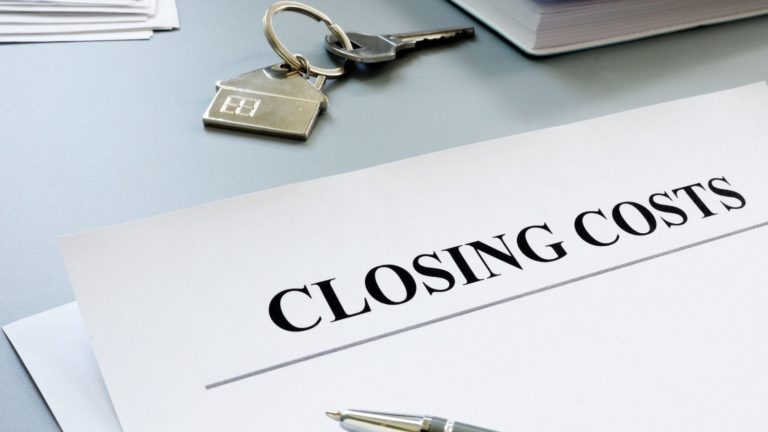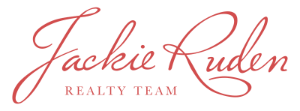Stepping into the world of homeownership is an exciting venture, but it’s also paved with less apparent expenses that can impact your budget. Beyond the listing price, savvy buyers should prepare for additional costs, from closing fees to ongoing maintenance. Understanding these expenses upfront can empower you to make an informed decision, ensuring your dream home remains a source of joy, not financial stress. Let’s shed light on the often-overlooked financial aspects of buying a house, setting the stage for a more thoughtful, more prepared home-buying experience.

Earnest Endeavors: Understanding the Earnest Money Deposit
An earnest money deposit is a buyer’s initial pledge to a home seller, signifying a serious intention to purchase the property. This deposit, usually submitted alongside your offer, typically ranges from 1-3% of the home’s purchase price, although it can vary. As a direct out-of-pocket expense, it’s crucial to understand that it is not part of your mortgage loan but a separate transaction demonstrating your commitment. This cash deposit is made soon after the seller accepts your offer, ensuring both parties have a financial stake in the transaction proceeding smoothly.
The size of your earnest money deposit can significantly influence the attractiveness of your offer, especially in competitive housing markets. A larger deposit may convey a higher level of seriousness and financial stability, making your offer more appealing to the seller. In contrast, a smaller deposit might reflect caution or limited funds, which could be less enticing to sellers, especially if there are multiple competing offers. Strategically deciding the amount of your earnest money can be a critical factor in your offer’s acceptance, signaling your commitment level and financial readiness to the sellers.
Once submitted, the earnest money is typically held in an escrow account, managed by a neutral third party until the closing of the home sale. This ensures the funds are protected and appropriately allocated as the transaction progresses. The deposit is generally applied towards your down payment or closing costs if the sale goes through. However, its refundability is contingent upon the specific conditions outlined in your purchase agreement. For instance, if certain contingencies like home inspection, appraisal, or financing are not satisfied, you may be entitled to a full refund. Understanding these contingencies and communicating clearly with all parties involved is essential to safeguard your earnest money deposit.
Down Payment Demystified: Securing Your Home Investment
A down payment is the cornerstone of purchasing a home, representing the buyer’s initial equity stake in the property. It’s a substantial cash payment made at closing, reducing the total amount borrowed from a lender. This payment is crucial as it affects your mortgage terms, including interest rates and monthly payments. Typically, lenders require a down payment of 5% to 20% of the home’s purchase price, though specific loan programs may allow lower percentages. The exact amount can vary depending on your loan type, the property, and financial situation.
This upfront investment serves multiple purposes. It reduces the lender’s risk, potentially securing more favorable loan terms and interest rates. It also influences your loan-to-value ratio, which determines whether you’ll need to pay for private mortgage insurance (PMI), adding cost until you’ve reached a certain amount of equity in your home. The down payment is usually one of the most significant cash outlays in home-buying, requiring substantial savings and financial planning. Unlike the earnest money, which may be folded into the down payment at closing, this is a larger, separate expense not covered by the mortgage loan.
Typically, the down payment is paid during the closing of the home sale, a culmination of the transaction process. Having these funds readily available as a cashier’s check or wire transfer is crucial to a smooth transition. Given its size and impact, the down payment is often the most considerable barrier to homeownership, but it’s also a critical investment in your future, reducing ongoing costs and building equity from day one. As with all aspects of home buying, it’s vital to understand the specific requirements and options available to you, including potential assistance programs that might help shoulder the burden of this significant cash expense.
Closing the Deal: Collective Closing Costs
As you finalize your home purchase, be prepared to encounter various closing costs, typically ranging from 2% to 5% of the loan amount. These expenses cover essential services, legal fees, and administrative tasks to transfer homeownership. While some buyers negotiate for sellers to cover parts of these costs, it’s crucial to understand your financial responsibility.
While most closing costs need to be paid upfront and cannot be rolled into your mortgage, there are exceptions, particularly with certain types of loans. Knowing the details of these costs and how they impact your immediate and long-term finances is vital to a successful and stress-free closing.
Incorporating closing costs into your mortgage might seem attractive to reduce upfront expenses, but it’s essential to understand the long-term implications. When you roll these costs into your loan, you’re essentially financing them over the mortgage’s life, which means you’ll pay interest on these amounts in addition to the principal. This can significantly increase the total amount you pay over time.
Moreover, increasing your loan amount might affect your loan-to-value ratio, potentially leading to higher interest rates or the need for private mortgage insurance. While folding closing costs into your mortgage can ease the immediate financial strain, it’s crucial to consider the increased costs over the entire period of your loan, ensuring it aligns with your financial goals and capabilities.
Application fee: This covers the lender’s costs of processing your mortgage application, including credit checks and initial administrative expenses.
Credit check fee: Separate from application fees, this covers the cost of obtaining your credit history from credit bureaus, a crucial step in determining your loan eligibility and interest rates.
Underwriting fee: Charged by the lender, this fee covers the cost of evaluating and verifying your mortgage application and supporting documents to make a decision on loan approval.
Other lender fees: These might include loan origination fees or points, which are upfront charges to reduce your interest rate, and various administrative costs associated with your loan.
Attorney fees: Some states require an attorney to be involved in the home-buying process, review closing documents, and oversee the legal transfer of the property.
Title check: This fee goes towards researching the property’s history to verify there are no issues with previous ownership, outstanding liens, or other encumbrances.
Title transfer: This covers the cost of officially transferring the property title from the seller to you, the buyer, and recording this change with the appropriate government body.
Appraisal: Lenders require a professional appraisal to determine the home’s fair market value, ensuring the loan amount does not exceed the property’s worth.
Inspection: A thorough inspection of the property is essential to identify any existing or potential issues that may affect the value or livability of the home.
Survey: This fee is for a professional surveyor to determine the exact boundaries and dimensions of the property, verifying that what’s on paper matches the physical property.
Homeowner’s insurance: Lenders require proof of homeowner’s insurance before closing, covering potential damages to the property.
Fire insurance: Often included as part of the homeowner’s insurance, it explicitly covers fire damages.
Flood insurance: Lenders may require additional flood insurance to protect against water damage if the property is in a flood zone.
PMI: If your down payment is less than 20%, you might need to pay Private Mortgage Insurance monthly until you’ve built sufficient equity in the home.
HOA fees: If the property is part of a homeowners’ association, you may need to pay initial fees or dues for the closing process.
Pre-paid points: Buyers sometimes pay points upfront to lower their mortgage interest rate, effectively pre-paying some interest to save money over the loan’s term.
Other fees might include recording fees, transfer taxes, escrow fees, courier fees, and ongoing property taxes and utility adjustments. Each of these contributes to the final tally of what’s due at closing, reflecting the comprehensive effort and expense involved in securing and transferring home ownership.

Powering Up Your New Home: Utility Deposits
Transitioning into a new home involves setting up various utilities and services, many of which may require an initial deposit. The service providers generally determine these upfront costs based on credit history or the previous tenant’s usage patterns. Here are some standard utilities and services that might require a deposit:
Electricity: Essential for lighting, heating, and powering appliances, many electric companies require a deposit to initiate service.
Gas: If your home uses gas for heating, cooking, or hot water, you’ll likely need to pay a deposit to the gas company.
Water and Sewer: While some locales include these services in the property tax, others may require a separate deposit for water and sewer services.
Trash and Recycling: Regular waste removal services might require an upfront payment to start collection services.
Internet and Cable: Service providers for internet and cable television often ask for a deposit, especially if you don’t have an existing account or a history with the company.
Telephone: Landline services, if desired or required, might also entail a deposit.
Security System: If installing a new system or continuing service from a previous owner, security companies may request an initial deposit.
It’s important to contact service providers before your move to understand the specific deposit requirements, potential credit checks, or ways to waive these fees. Planning for these additional expenses sets the stage for a smooth transition, allowing you to enjoy your new home fully powered and connected.
Setting Up for Comfort: Essential Household Needs After Moving
Transitioning into your new home goes beyond unpacking boxes; it’s about creating a comfortable and functional living space. Here’s a list of household essentials you might need after moving:
Window coverings: Install blinds or curtains to provide privacy and control over natural light in your new space.
Shower curtains: A must-have for privacy and water management in any bathroom with a shower or tub.
Trash cans: Necessary for every room that generates waste, including the kitchen, bathrooms, and home office.
Towels: Stock up on bath, hand, and kitchen towels for daily use and comfort.
Bedding: Prepare for a good night’s sleep with fresh sheets, pillows, and comforters or duvets for each bed.
Dishes: Plates, bowls, cups, and eating utensils are essential for serving and enjoying meals.
Cookware: Pots, pans, and baking sheets are necessary for preparing a wide range of meals and snacks.
Cleaning supplies: Keep your home tidy with a stock of necessary cleaning products for various surfaces and rooms.
Small appliances: Consider what you’ll need for daily routines, such as coffee makers, toasters, microwaves, or blenders.
Storage solutions: Organize your space with shelving units, closet organizers, or storage bins.
Lighting: Adequate lighting is essential; consider floor lamps, table lamps, or additional fixtures to brighten your space.
Personal items: Don’t forget personal hygiene products, clothing hangers, and other necessities to make your space your own.
By considering these items, you’ll be well on your way to creating a home that’s not only functional but also a cozy and inviting space for you and your family.
Creating Comfort: Budgeting for Home Furnishings
Furnishing your new home is an opportunity to define your living space and a significant financial undertaking. Thoughtful planning is essential to make sure each room feels comfortable and suits your lifestyle without exceeding your budget. Here are the key considerations when allocating funds for home furnishings:
Furniture: The backbone of any home, furniture such as beds, sofas, dining tables, and chairs are essential. Consider durability, comfort, and style to suit your living needs and aesthetic preferences.
Rugs and Carpets: These elements add comfort, warmth, and color to your home. They can also define spaces within larger rooms. The cost can vary widely based on size, material, and quality.
Art and Decor: Personalize your space with artwork, photographs, and decorative objects that reflect your personality and style. These items can range from affordable prints to investment pieces.
Outdoor Furniture: If your new home includes outdoor space, appropriate furniture can transform it into an enjoyable living area extension. Consider weather-resistant materials and the functionality of the pieces.
Textiles and Linens: Cushions, throws, curtains, and bedding add texture and comfort to your home. They’re an easy way to introduce color and pattern and can be updated seasonally.
Shelving and Storage: Adequate storage solutions help keep your space organized and clutter-free. Consider built-in units, bookcases, and multi-functional furniture with storage capabilities.
Remember, furnishing a home is a process that doesn’t need to be rushed. Prioritize your purchases based on immediate needs and personal preference, and consider investing gradually in high-quality pieces that will last. Exploring various retailers, sales, and second-hand options can also provide economical ways to achieve your home’s desired look and functionality.

Moving Expenses: Budgeting for the Big Move
Moving to a new home is an exciting and significant journey, often involving a range of expenses that can impact your budget. Understanding these costs can help you plan effectively and avoid unexpected financial stress. Here are some key moving expenses to consider:
Moving company fees: If you’re hiring professional movers, costs can vary widely depending on distance, the volume of items, and the level of service required. This might include packing, furniture disassembly, and valuables handling.
Truck rental: For a more hands-on approach, renting a moving truck is a cost-effective option. Consider rental fees, insurance, fuel costs, and any additional equipment like dollies or furniture pads.
Packing supplies: Boxes, tape, bubble wrap, and other packing materials are essential for protecting your belongings during the move.
Travel costs: If you’re moving long-distance, factor in travel expenses such as flights, hotels, and meals.
Insurance: Investing in moving insurance or additional coverage can protect your valuables against loss or damage.
Utility fees: Setting up or transferring utilities may involve deposits or installation fees.
Cleaning services: You might require professional cleaning for your old home or the new one, ensuring both are in good condition.
Storage: If there’s a gap between moving out and moving in, or if you need to downsize, storage units are a practical but additional expense.
Pet or childcare: During moving, you might need temporary care for children or pets.
Tips for movers: It’s customary to tip your moving crew for their hard work, typically a percentage of the total moving cost.
By anticipating these expenses and incorporating them into your moving budget, you can create a smoother transition to your new home without the burden of unexpected costs. Planning, requesting multiple quotes, and considering off-peak times can also help manage these expenses effectively.
Getting Started on Your Homeownership Adventure
As you prepare to step into homeownership, understanding the full spectrum of expenses, from earnest money deposits to the nuances of furnishing your new home, is crucial. Equipped with this knowledge, you’re ready to make informed decisions that align with your financial goals and personal aspirations. If you’re poised to find the perfect home and confidently navigate the journey, I’m here to guide you. Contact me today, and let’s transform your dream of homeownership into a reality. Together, we’ll see to it that your home-buying experience is as rewarding and seamless as possible.
Contact Jackie Ruden Realty Team
Give us a call today at (435) 272-7710 to set up a time to discuss your current and future real estate goals in regards to buying a home or buying a property in trust. We look forward to working with you to make your goals a reality.





